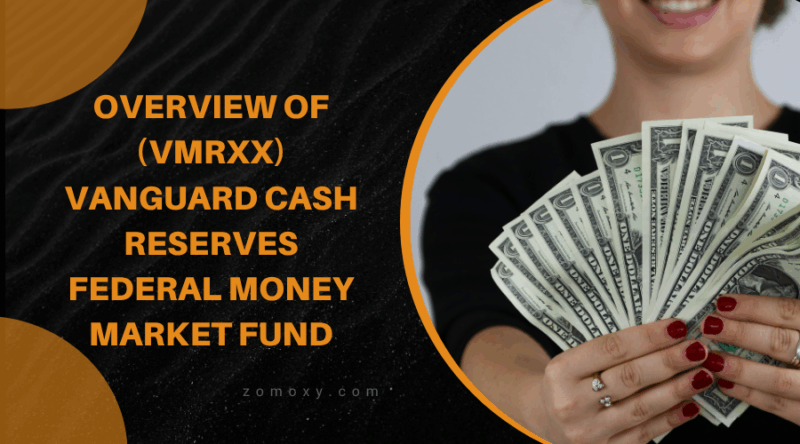VMRXX is a popular mutual fund option for investors who want safety and liquidity. It is the Vanguard Money Market Fund Investor Shares, designed to provide a stable return while keeping your money easily accessible. VMRXX invests in short-term, high-quality securities, making it a low-risk choice compared to other mutual funds.
Investors often use VMRXX to park cash temporarily or as part of a diversified portfolio. The fund focuses on preserving capital and offering reasonable interest, which makes it suitable for conservative investors. Since it invests in short-term instruments, the value of VMRXX remains relatively stable, and it can be an excellent option during uncertain market conditions.
Overall, VMRXX is ideal for people who want low-risk investments with easy access to their funds. It provides peace of mind while earning modest returns, making it a practical choice for both beginners and experienced investors.
What is Vanguard Cash Reserves Federal Market Fund (VMRXX) ?
The Vanguard Cash Reserves Federal Market Fund (VMRXX) is a type of money market mutual fund. It is designed to provide investors with safety, liquidity, and a modest return on short-term investments. VMRXX mainly invests in high-quality, short-term U.S. government securities, such as Treasury bills and other government-backed instruments.
The goal of VMRXX is to preserve capital while offering easy access to your money. This makes it an ideal option for parking cash temporarily, managing emergency funds, or diversifying a low-risk investment portfolio. Because it invests in highly secure instruments, VMRXX carries minimal risk compared to stocks or long-term mutual funds.
Investors often choose the Vanguard Cash Reserves Federal Market Fund (VMRXX) for its stability, liquidity, and convenience. It allows money to earn a modest return while keeping funds accessible when needed, making it a practical choice for conservative investors and those seeking a safe place to hold cash.
Who Should Invest?
The Vanguard Cash Reserves Federal Money Market Fund carries a significant amount of cash, making it an incredibly liquid asset. Securities held in the fund are also highly liquid, with the average maturity sitting at 38 days.
This makes the fund highly suitable for conservative investors whose tolerance for risk is low. It’s also a great investment choice for anyone who may need quick access to money on a daily basis. That doesn’t mean investors with longer-term investment horizons can’t benefit from the fund. In fact, these investors may use VMRXX for the cash allocation of their long-term investment portfolios, using it as a complement to some of their other, riskier holdings.
Understanding the Vanguard Cash Reserves Federal Money Market Fund
The Vanguard Cash Reserves Federal Money Market Fund Investor Shares (VMRXX) is a conservative investment option offered by The Vanguard Group—one of the world’s largest equity and fixed income managers. The fund is taxable and is designed specifically for the retail investor.
Launched in 1989 and holds total assets of $120.1 billion as of Dec. 11, 2024. The portfolio contains 252 securities. The minimum investment is $3,000, and any additional investment after that is priced at $1 per share. The expense ratio is 0.10%, and there are no purchase or redemption fees.
The fund is primarily invested in the following:
- Repurchase Agreements: 25.70%
- U.S Treasury Bills: 36.50%
- U.S. Government Obligations: 37.80%
The yields of money market mutual funds are largely dependent on the interest rate environment, meaning their yields will likely rise as interest rates rise. So when interest rates rise, money market mutual funds like Vanguard’s Cash Reserves Federal Money Market Fund become more attractive to investors.
Like all mutual fund money market funds, VMRXX is not insured or guaranteed by the Federal Deposit Insurance Corporation (FDIC). Investors concerned about the lack of insurance may wish to consider a money market fund account offered by a bank since the FDIC insures those accounts up to $250,000.
What is VMRXX yield?
$1.00. Gross Expense Ratio 0.10 % Net Expense Ratio 0.10 % Data as of close on 11/07/2025. SEC 7 Day Yield 3.92 %.
How Is the Yield Calculated ?
- The “SEC yield” for a money market fund is the annualized yield based on the most recent 7‑days of income distributions after expenses.
- This gives an estimate of what the fund would earn (on an annual basis) if the income rate remained the same as the past 7 days.
- Because yields can change daily (as short‑term interest rates and fund expenses vary), this is a snapshot rather than a guaranteed fixed rate.
What is better, VMFXX or VMRXX?
VMFXX vs VMRXX — Key Differences & Comparison:
1. Expense Ratio
- VMRXX (Vanguard Cash Reserves Federal Money Market Fund) has an expense ratio of 0.10%. Vanguard
- VMFXX (Vanguard Federal Money Market Fund) has a slightly higher expense ratio of 0.11%.
- → So VMRXX is a tiny bit cheaper in terms of fees.
2. Risk / Portfolio Composition
- VMRXX invests about 25% of its assets in securities issued by financial companies / government-sponsored enterprises.
- VMFXX is more “pure” in the sense that it holds a very high proportion (≥ 99.5%) in U.S. government securities and repurchase agreements.
- → That means VMRXX may carry slightly more credit risk, but still very low risk overall.
3. Yields
- According to Vanguard’s fact sheet, VMRXX has a 7-day SEC yield of ~4.24% (as per the March 2025 fact sheet). Vanguard
- For VMFXX, as of March 31, 2025, the 7-day SEC yield is listed at 4.23%. Vanguard
- → The yield difference is very small in practice.
4. Fund Size & Liquidity
- VMFXX is very large and often used as the default settlement fund in Vanguard brokerage accounts.
- VMRXX, while also large, is more “active” in how it manages its assets.
Is VMRXX a good fund?
Why VMRXX Can Be a Good Choice
- Low Risk
- This fund invests primarily in high-quality, very short-term securities.
- It is designed to maintain a stable net asset value (NAV) of $1 per share, which helps preserve your capital. Vanguard
- High Liquidity
- Because it deals in very short-maturity instruments, you can generally access your money quickly.
- It’s suitable for cash you might need soon — like an emergency fund or short-term cash reserve. Pro Invest News+1
- Low Expense Ratio
- The expense ratio is very low: 0.10% as per its fact sheet.
- Low costs mean less drag on your returns in this kind of fund.
- Reasonable Yield (for a Money Market Fund)
- The 7-day yield is relatively competitive compared to many other cash-equivalent options.
- Since it invests in slightly more than just U.S. Treasuries (e.g., some repurchase agreements), it can offer a yield premium compared to ultra-safe treasury-only funds. vanguard.com
Risks and Drawbacks to Consider
Because it’s low-risk, it won’t deliver high growth — it’s more like a “safe parking place” for cash
Not FDIC-Insured
- Like all mutual funds, VMRXX is not FDIC-insured.
- In a very stressed financial situation, money‑market funds can face liquidity issues (though this is rare for high-quality funds).
Credit Risk
While most of the fund is government-backed, a portion is invested in securities issued by financial companies (government‑sponsored enterprises), which introduces a small amount of credit risk.
Returns vs Inflation
- The return is modest. Over long periods, inflation could erode the real value of the money parked here.
- Because it’s low-risk, it won’t deliver high growth — it’s more like a “safe parking place” for cash.
FAQ
Q1. What is the minimum investment required for VMRXX?
Q2. What types of securities does VMRXX invest in?
Q3. How liquid is VMRXX — can I withdraw money quickly?
Yes, VMRXX is very liquid. It’s designed for short-term cash parking, so investors can generally access their money quickly, though redemptions settle according to mutual fund rules. Vanguard’s money market funds aim to maintain a stable $1 NAV.
Q4. What are the main risks of investing in VMRXX?
Key risks include:
Interest rate risk: Yields can drop if interest rates fall.
Credit risk: Some portion of the fund is in non‑Treasury agency securities.
Inflation risk: Returns may not keep pace with inflation over time.





